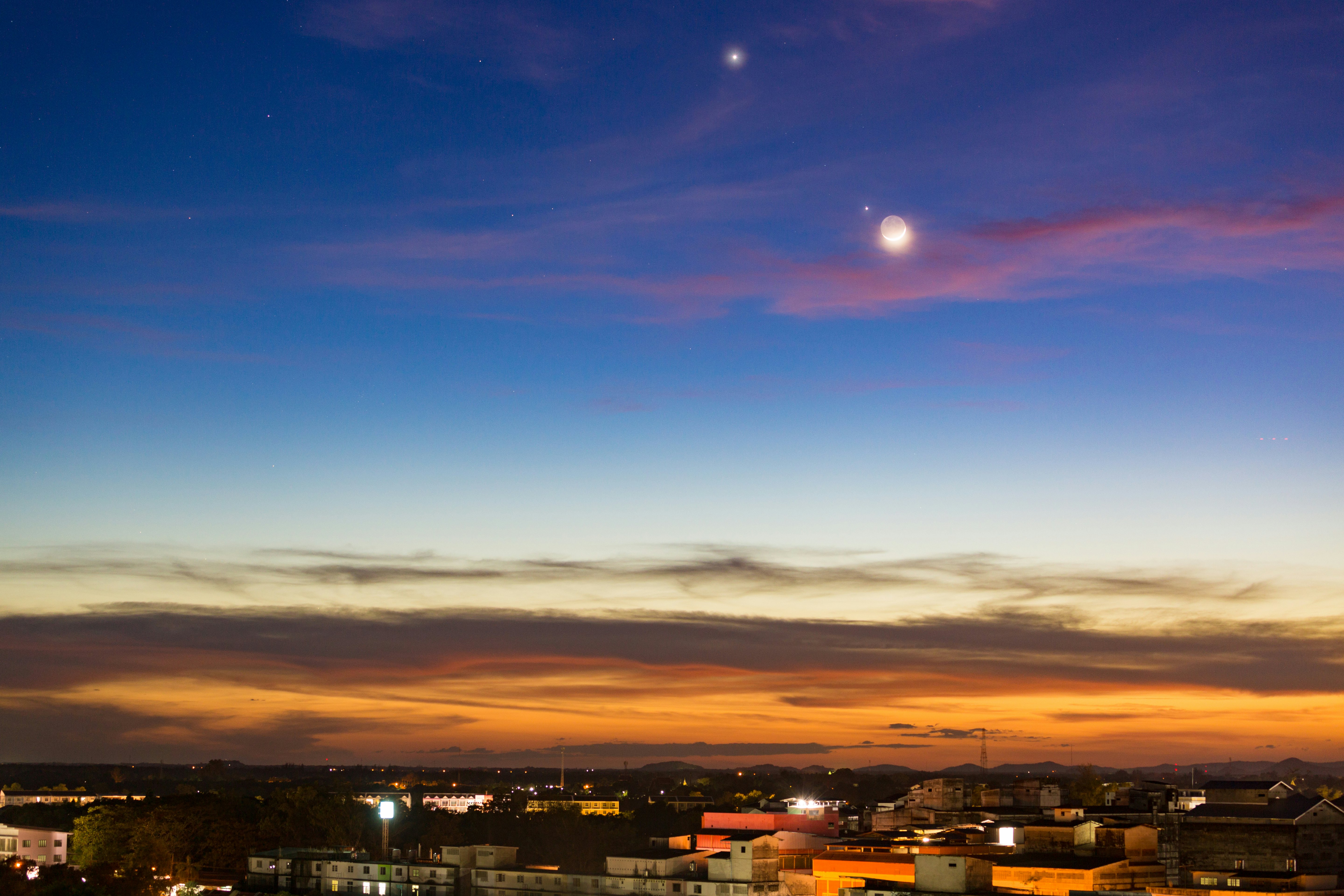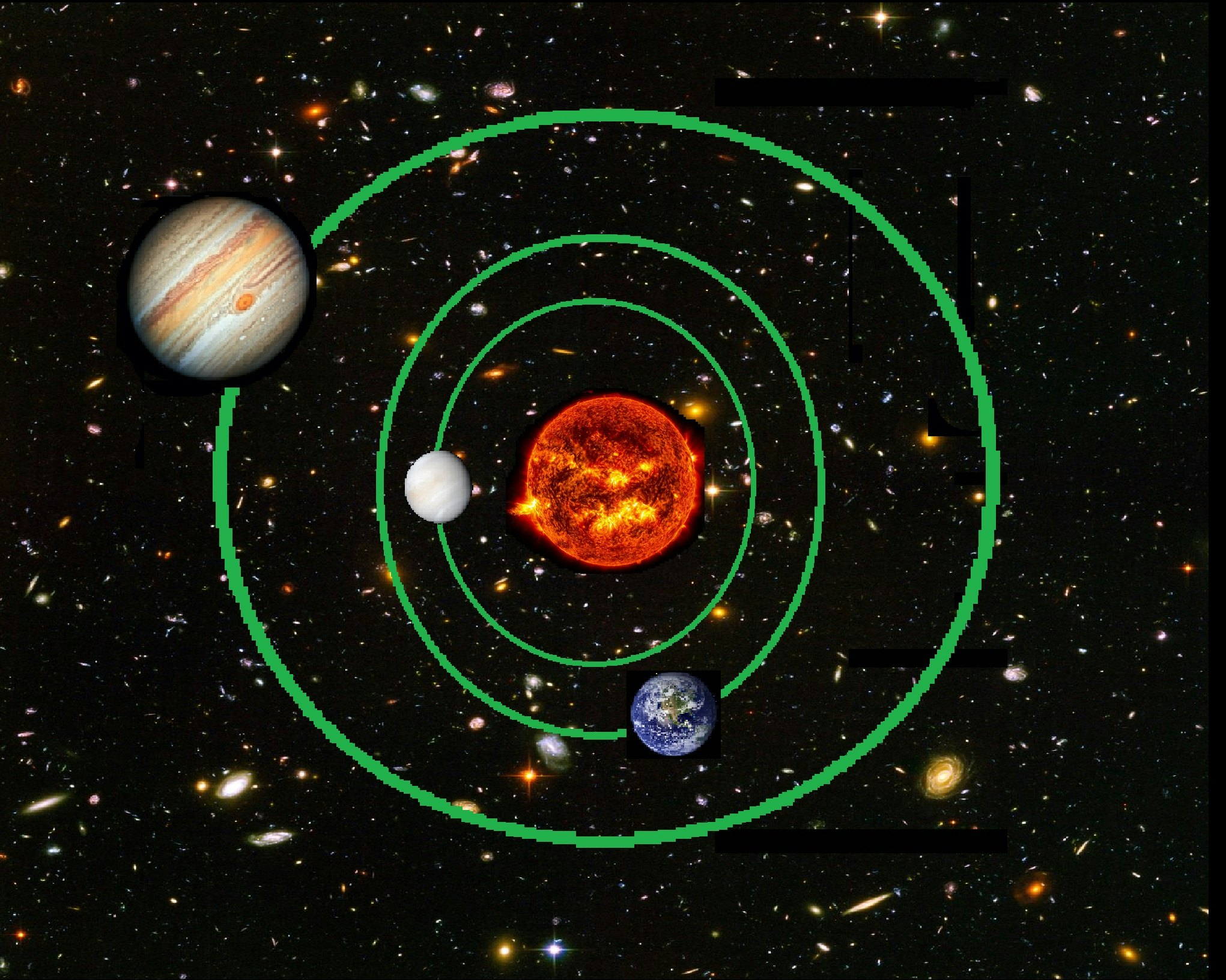
If you’ve looked up at the night sky in the last week or so, you may have noticed two bright objects moving steadily closer together.
The objects you’re seeing aren’t stray high-altitude balloons or UAPs; they’re Venus and Jupiter, staging a dramatic display of orbital dynamics for anyone who happens to look up. Here’s your Inverse guide to this spring’s planetary conjunction between Venus and Jupiter.
What Is A Planetary Conjunction?
A conjunction happens when two planets appear to be really close to each other in the night sky.
On the night of March 1, the two planets’ paths around the Sun will bring them into a nearly-perfect alignment with Earth, so that you could almost draw a straight line from Earth to Venus to Jupiter. And that alignment creates the optical illusion that Venus and Jupiter are less than a Moon’s width apart when they’re really about 400 million miles away from each other.
If you could zoom outside the Solar System, the upcoming conjunction would look a little like this:

How to See the Venus-Jupiter Conjunction
You can watch the two planets move into position over the next several days. Venus is the brightest object in the night sky (second only to the Moon), and Jupiter is only slightly dimmer, so they should be easy to spot if you have clear weather and reasonably dark skies. Look in the general vicinity of the Moon shortly after sunset, and the two brightest lights you see should be Venus and Jupiter.
Venus and Jupiter are both bright enough to see with the unaided eye, but if you have a telescope, you should be able to see two or three of Jupiter’s largest moons in the mix as well.
The conjunction itself will happen on the night of March 1.
What’s So Cool About the Venus-Jupiter Conjunction?
“Conjunctions have no profound astronomical significance, but they are nice to view,” wrote NASA’s Jennifer Harbaugh in April 2022. A planetary conjunction will also have no impact whatsoever on your love life, your health, or your overall fate (unless you meet the love of your life or catch the flu while stargazing, but that’s not the planets’ fault).
But conjunctions like this one are an amazing reminder of our vantage point on a planet zipping around a star, accompanied by other planets also whizzing around the star at different distances, all constantly moving in three dimensions.







